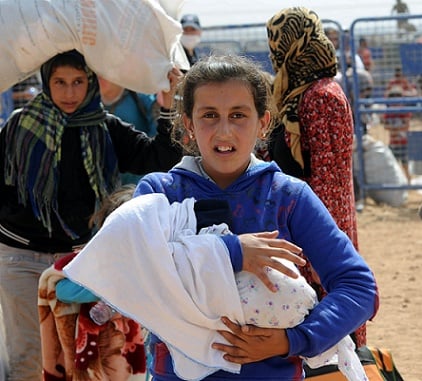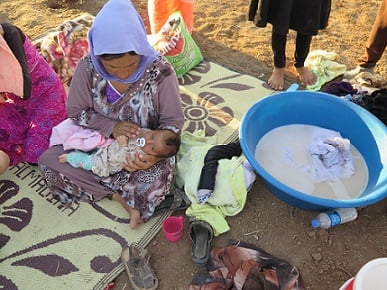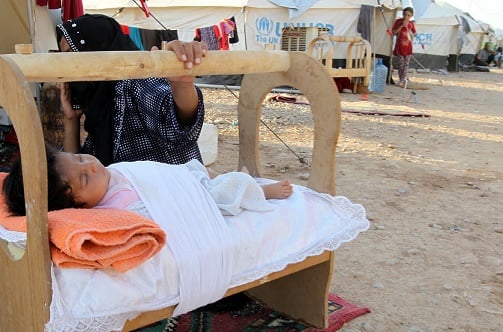

TRIGGER WARNING: This article deals with accounts of sexual assault and violence. It may be distressing for some trauma survivors.
Captured women and children from a religious minority in northern Iraq have been enslaved and sold among Islamic State jihadists, the ABC reports.
While reports about the group’s enslavement of women and girls have been circulating for months — as Mamamia reports below — the radical organisation has just admitted to the atrocities for the first time in its propaganda magazine, Dabiq, released on Sunday.
Dabiq wrote in an article entitled The Revival of Slavery Before the Hour that by enslaving Yazidis, IS had restored an aspect of sharia law to its original meaning.





Top Comments
"Why is it the beheadings of brave, innocent men make the front pages of mainstream newspapers, while the sexual torture of brave, innocent women does not?"
Western lives vauled over other lives
I wonder how the public would feel if it were men being gang raped and kept as sex slaves.